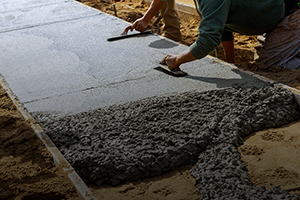More Durable Concrete

A new additive that prevents concrete from deteriorating during cycles of freezing and thawing could help protect critical infrastructure. This new antifreeze compound was inspired by a naturally occurring protein found in fish and bacteria that allows them to survive in frigid environments. By clinging to the surface of ice crystals, the proteins prevent those crystals from growing.
Providing similar protections against the freezing and thawing of water that inevitably seeps into porous concrete could substantially improve that material’s strength and integrity. But the proteins proved to be ineffective in highly alkaline cement, so researchers looked to a polymer known as PET-PVA, which is used in time-release pharmaceutical capsules. When tested in samples of varying concentrations through 300 freeze-thaw cycles, concrete samples without the experimental additive deteriorated substantially while those with it did not.
Further testing will be needed to assess how the material will react when exposed to environmental contaminants and vibration. The developers hope that the patent-pending process could become commercially available within five years.
For information: Wil Srubar, University of Colorado-Boulder, Civil, Environmental and Architectural Engineering, UCB 428, Boulder, CO 80309; phone: 303-492-6382; email: wsrubar@colorado.edu; website: https://www.colorado.edu/ or https://spot.colorado.edu/~wisr7047/